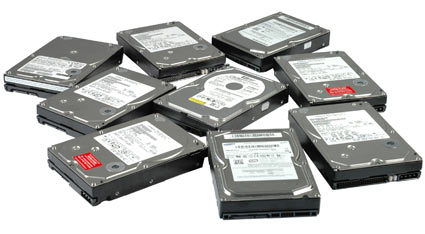2007 HDD Rundown: Can High Capacities Meet High Performance?
Conclusion
The latest price drops are remarkable, especially in the mainstream segment - you can get a hard drive with at least 250 GB for less than $ 130. Even drives with 320 GB are available at about the same cost. Drives with 400 GB and higher are more expensive, which is why we recommend such capacities only if you really need them right away or in the near future. Don't spend more money than you actually have to! If you end up lacking for storage space soon again in the future, you are definitely better off buying another hard drive, because in just one year you might get a 750 GB hard drive at the exact same price you pay for 300 GB today. This constant, dramatic drop in prices makes investing in larger capacities absolutely unattractive.
The easiest way for most users to check out the best price per capacity ratio is to take a look at our Interactive Hard Drive Charts to find the model that suits their demands best. If you are simply looking for data storage, you might be satisfied with the lowest-price offer. If drives are operated in external hard drive enclosures, please make sure you get a drive with as little heat dissipation as possible. In this regard, Samsung is doing a fabulous job with low-heat drives in capacities from 80 to 500 GB. In general, you can also count on one rule: fewer platters per hard drive result in less heat.
If you are looking for a system hard drive on which to install Windows, it makes more sense to get the fastest hard drive possible. Hard drives with just a single platter are most interesting, since the performance is best; these include the Western Digital Caviar SE WD1600AAJS and Hitachi DeskStar 7K160 - both 160 GB. If money is not an issue why not even consider getting a Western Digital Raptor?
There is only one thing you should keep in mind: Increasing capacities cause a higher demand for backup storage space as well. We would not recommend saving an MP3 archive of several dozen gigabytes to a hard drive exclusively - remember that if the drive goes bad, your data will be gone for good.
Join our discussion on this topic
Get Tom's Hardware's best news and in-depth reviews, straight to your inbox.

Patrick Schmid was the editor-in-chief for Tom's Hardware from 2005 to 2006. He wrote numerous articles on a wide range of hardware topics, including storage, CPUs, and system builds.

